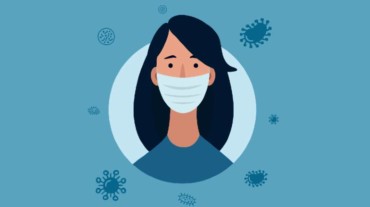
With coronavirus cases rising across the globe, there is more panic and less awareness. Now, especially when there are 28 confirmed coronavirus cases in Delhi–the threat feels more real.
But before you press the panic button and make plans to hibernate at home to prevent a COVID-19 infection, know this:
Coronavirus is contagious, but you need to arm yourself with the right information and not just masks.
So here are some FAQs about the virus in a concise recap to help you better deal with this epidemic.
What is coronavirus?
Its is a large family of viruses that cause illnesses ranging from the common cold to more severe diseases such as severe acute respiratory distress (SARS) syndrome.
Where and how it originated?
The virus was first reported on December 31 2019 in Wuhan, China. This novel coronavirus is a new strain that has not been previously identified in humans before.
While it is not clear how humans came to acquire this virus, some studies indicate that it would have come from bats–though others say animals like cats, camels, and snakes are the source.
Also, watch:
Its symptoms include fever, cough, and difficulty in breathing
Since the virus’ symptoms are very similar to that of the common flu it’s important to seek medical attention as soon as exhibit any signs. Common signs of infection include respiratory issues, fever, cough, shortness of breath, and breathing difficulties. In more severe cases, it can also cause pneumonia, severe acute respiratory syndrome, kidney failure, and even death.
How does the virus transmit and how can you protect yourself?
Coronavirus is a zoonotic virus and it can transmit between animals and people. In fact, several known coronaviruses are circulating in animals that have not yet infected humans.
Select Topics of your interest and let us customize your feed.
PERSONALISE NOWMaintaining good hand hygiene is very essential when it comes to prevention infection. Washing your hands with antiseptic handwash and alcohol-based sanitisers is a good idea. Try to maintain three feet distance from other people, especially those who are sneezing or have fever. Small droplets from sneezes contain the virus, so if you’re too close to the person–there are high chances that you will breathe in the virus.
Also, listen:
According to Dr Sachin Verma, a leading healthcare practitioner, the best way to safeguard yourself from a possible case of COVID-19 is to keep hygiene in mind.
He suggests: “Wash your hands and/or sanitise them as frequently as possible. Make sure to maintain a distance from a person who is showing symptoms such as sneezing, coughing, flu etc.”
“Recent cases have shown patients to demonstrate abdominal pain as a symptom. Keep an eye out for this. Check with a medical practitioner immediately in case you find yourself unwell or demonstrating any of the known symptoms,” he says.
Also, try to avoid touching your face, eyes, nose or mouth with your contaminated hands, as you can transfer the virus from the surface to your person. Standard recommendations also include covering mouth and nose when coughing and sneezing.
What are the dangers with COVID-19?
Just like other respiratory illness, coronavirus can cause mild symptoms including runny nose, sore throat, cough, and fever. It can be more severe for people who have lower immunity and can lead to pneumonia or breathing difficulties. More rarely, the disease can be fatal. Currently, the mortality rate stands to 3.4% globally.

Also, read: Myths about coronavirus debunked. Here’s why you shouldn’t fall for them
Older people and people with pre-existing medical conditions such as diabetes and heart disease appear to be more vulnerable to becoming severely ill with the virus.
While the mortality rate is low, it is still very dangerous because of the speed it’s spreading across the globe. So take care of yourself and try to be safe!
(With inputs from IANS)